Better Measures of Online Motivation
Some online courses are life-changing educational experiences, while others are just as life-changing, but in a bad way. Student motivation can play a huge role in making online learning better but only if we can figure out better ways to measure it. I have a plan and I need your help to make online classes better. If you are teaching online or currently taking a class online, keep reading to learn what I’m doing, why I think it will help, and how you can be a part of it.Are you already sold on the idea of helping to make online courses more motivating? Great! Here is the survey link. To participate, you just need to be 1) 18 years old or older and 2) currently enrolled in any college-level online class. That's it. The survey should take between 6 and 10 minutes. Your answers will help me determine the most effective questions to use to measure motivation.NOTE: I closed the survey on 3/16 with 531 respondents! Now it's time for analysis. Thank you to everyone who helped make this research happen by taking the survey, sharing the survey, or both.
My name is Jerod Quinn,
I'm a doctoral candidate in Educational Psychology at the University of Missouri. I'm passionate about online learning and about motivation.
This is my dissertation research.
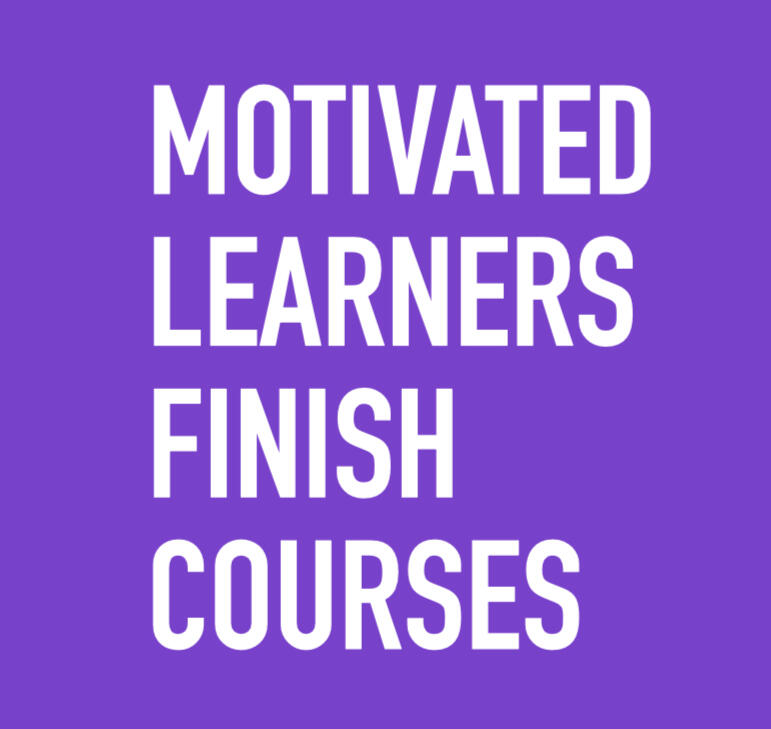
Motivated Learners Finish Courses
Motivated learners finish courses. We know this, down to our bones. We know what it is like to be motivated to complete something even when that something is challenging. Perhaps especially when that something is challenging. Like a college course. Education researchers study motivation in education and it's true that motivation matters both in student stories and quantitative data we collect. But how can we tell if a learner is motivated, especially an online learner? There are three key indicators.
The BIG 3 Online
There are lots of good things that can be in an online course. There are lots of people who will sell you a 40+ items rubric to check for those well-intentioned things. But there are few practices that have major impacts on grades and completion rates. I've found three: faculty-student connection, the learner's sense of belonging, and clarity of structure in the learning environment. Each of these factors lead to gains in learner grades and increased retention and completion rates, not just good vibes. And these gains are found across colleges and learner demographics. They also can fire up a learner's motivation.
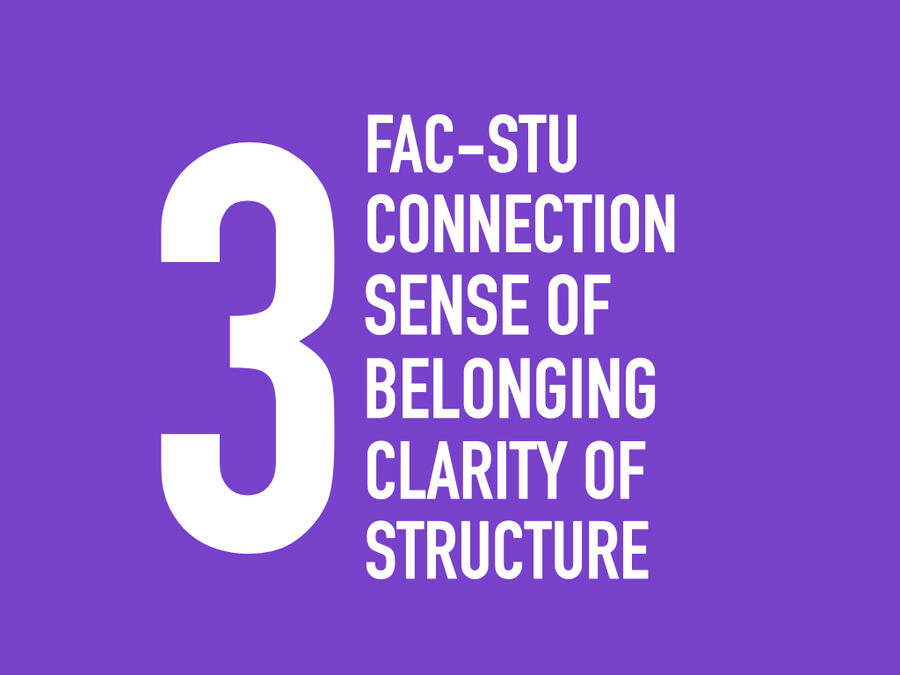
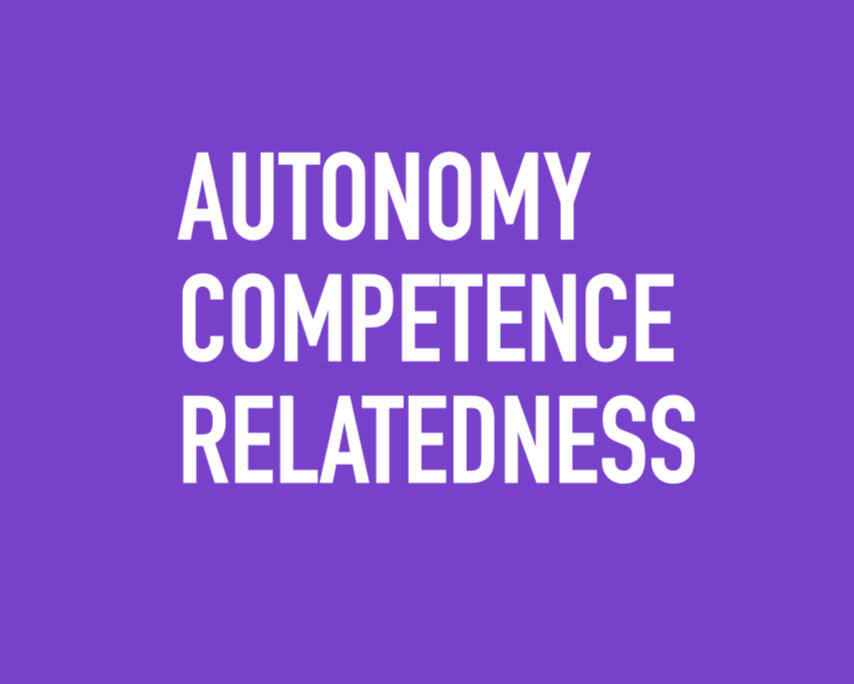
Self-Determined Motivation
A student's self-determined motivation can also lead to positive academic outcomes and increased classroom engagement. When the basic psychological needs for autonomy, competence, and relatedness are met in an educational environment, it supports students' well-being, intrinsic motivation, and leads to a better learning experience. Students’ sense of autonomy, competence, and relatedness are shaped by their experience in the classroom, and in our case, the online classroom. When the psychological needs are not met, well, bad things tend to result. But there are ways to meet those three needs.
Prefer a video?
Already tired of reading my explanation? No problem. I have a 5 minute video version. It's a bit...let's say...homemade, but it explains what I'm trying to do with this motivation research project. And you get to hear me be snarky while informative.
The BIG 3 + SDT
Self-determined motivation can be supported or frustrated by how learners experience faculty-student connections, a sense of belonging, and clarity of structure while learning online. There are expressions of faculty-student connection that can support learner autonomy in their skill development, just like there are experiences of faculty-student connection that can foster a sense of competence or relatedness. There are paths for students to experience a sense of belonging in an online course that foster relatedness to peers, but belonging can also support a student's sense of autonomy and competence. Clarity of structure in an online environment builds a learner’s sense of competence by making clear the expectations the instructor has for them, but it can also outline paths for learners to foster relatedness with peers and build autonomy in their learning practices. A learner’s sense of motivational needs can be met or frustrated through each of these three factors. For researchers interested in developing online classroom interventions that foster motivation in ways that can be directly tied to academic achievement, measuring motivation through the lens of faculty-student connections, sense of belonging, and clarity of structure offers measurement of theoretical constructs through the presence of pragmatic classroom practices.
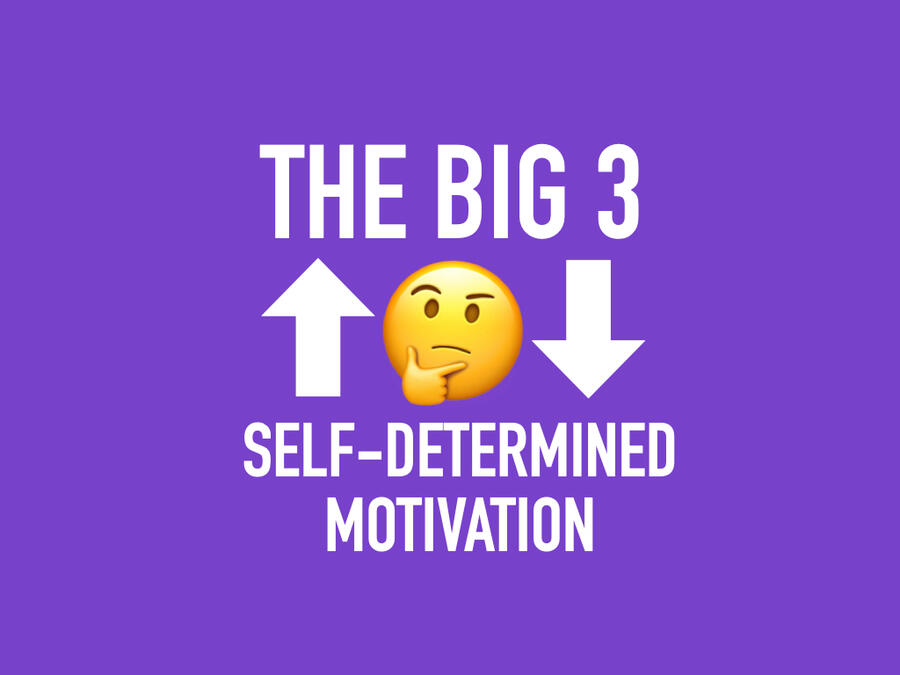
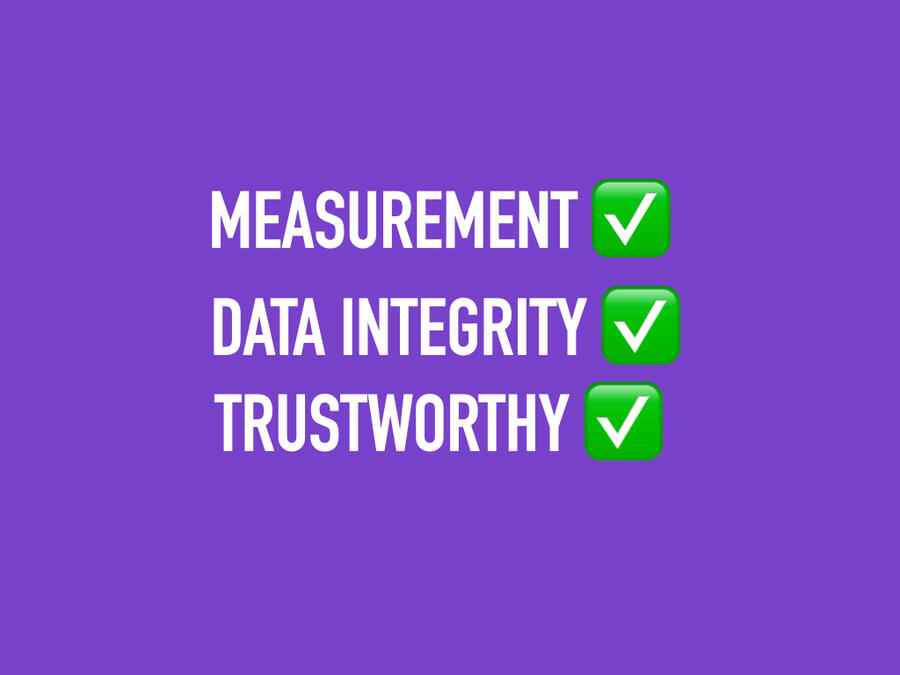
Your Data is Only as Good as Your Measurement
There is no survey instrument designed to measure self-determined motivation in online learners at the collegiate level. Doesn't exist. Current approaches rely on adaptations of scales created for use in other contexts with modifications justified often solely on Cronbach's alphas. This is problematic because alphas are easily fooled and can look better than they are. This lack of measurement transparency throws doubt on research findings grounded in questionable measurement practices. A new survey for measuring self-determined motivation in online learners would benefit from theoretical grounding in motivation combined with the unique context of online learning. It would benefit from using both qualitative and quantitative procedures that bring expertise and experiences from outside the researcher into the item development process. That's what I'm doing here.
Qual + Quant for the win
I have created this survey in partnership with motivation experts, online experts, and a team of undergraduates from multiple colleges. It's designed to measure online student motivation through the experience of faculty-student connections, sense of belonging, and clarity of structure. This survey is intended to give researchers and practitioners a thoroughly developed instrument to measure motivation in online college students with the intent of crafting interventions that create better learning experiences in online university classrooms.Now I need to field test the survey to pinpoint the best and most informative survey questions. That's where you come in. I need 300+ online students to take this survey for the statistics to work. The more the merrier. This will let me identify the questions that do the best job of measuring motivation and then I can narrow the survey down to the fewest yet most informative items. Right now, it's at 45 questions. I want to get it down to 20+. I need students to take the survey because that's what will let me use statistical analysis to calibrate the accuracy and keep just the best questions.
How You Can Help
So please, if you are an instructor, share this survey with your learners. If you are on online learner yourself, take the survey and share it with your classmates. It should take between 6 and 10 minutes. With your help, maybe we can make online learning more motivating, more engaging, and just plain more fun for everyone involved. Thank you.

A Script for Teachers
Teachers, here's a script you can use to share this survey with your class.Hello class! We have been invited to join in some research about online learning and motivation. I would like to ask each and every one of you to take this survey. Jerod Quinn, a doctoral candidate from the University of Missouri’s Educational Psychology department, is creating a way to measure online learners’ motivation in relation to high-impact factors for academic success. The goal is to help educators better identify how they are motivating their learners to engage in order to build off those strengths. He needs online learners to take this 45 item survey about their motivation with a few questions about demographics. It should only take between 6 and 10 minutes. This study is IRB approved, optional and not for a grade, and will help make online course better for learners and instructors. Please take a few minutes to help him out.
Online Student Motivation Survey Link - Survey closed 3/16